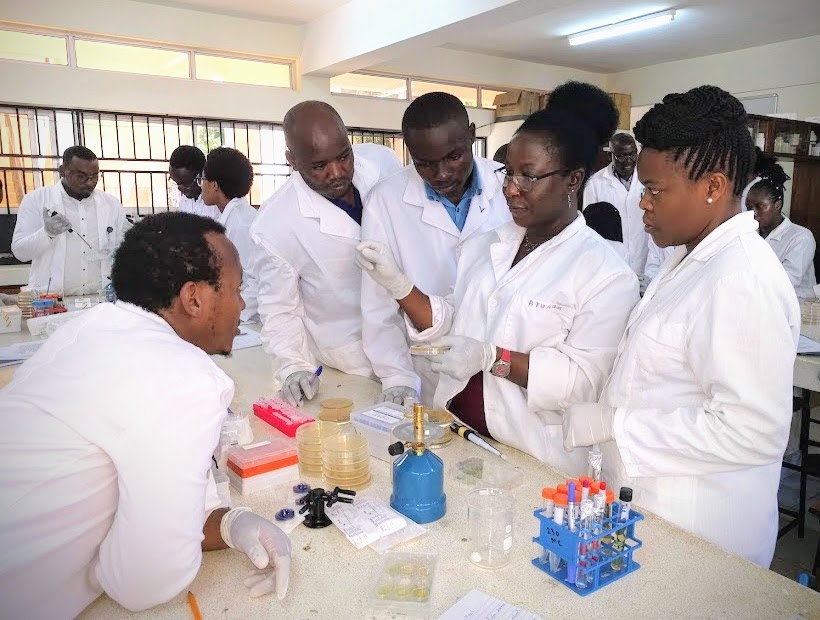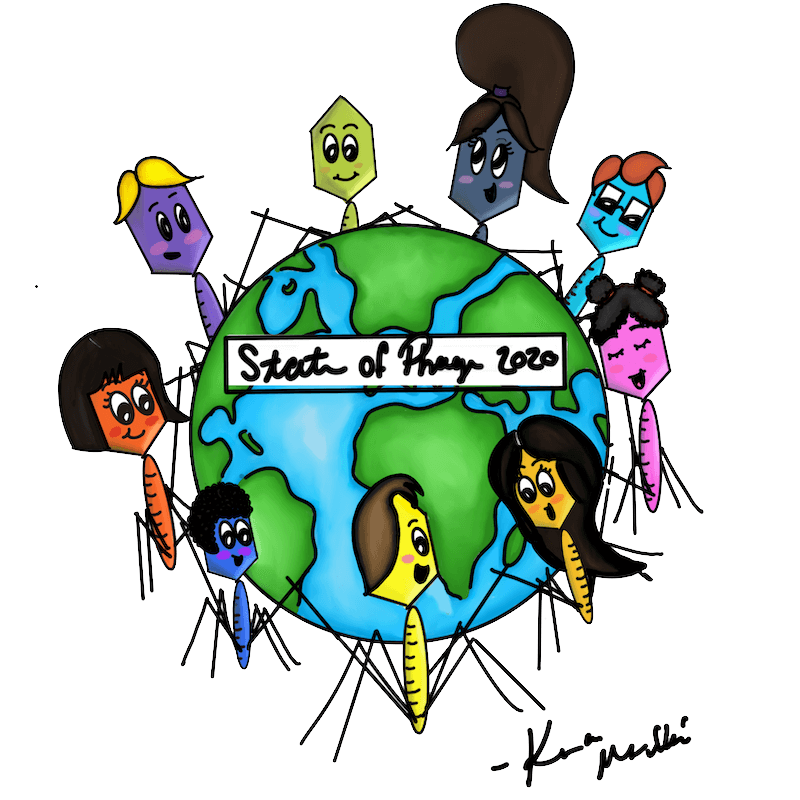This week, Clément Girardot interviewed University of Leicester Professor Martha Clokie about her work as an instructor for Phages for Global Health, the non-profit organization founded by Dr. Tobi Nagel to facilitate the application of phage therapy in developing countries.
Clément: Why did you decide to join Phages for Global Health as an instructor?
Martha: When Tobi asked me to be an instructor and provide academic input developing the course content for Phages for Global Health (PGH) I barely hesitated before accepting her offer. My reason for being so pleased to join the PGH endeavour is that I think it’s such a good idea to take ‘State-of-the-art’ phage knowledge to people who need it. AMR is a global problem and in particular it is predicted to kill millions of people in Africa unless something is done about it. I think phages will be useful globally but most countries in Africa do not have a strong background in phage biology.
Tobi was cleverly putting together an infrastructure to provide this and I was very happy to input into this. I have worked on phages for nearly two decades – and like the idea of imparting the knowledge I have gained from this to help researchers from developing countries to do their own phage work. I like to impart the skills to allow them to find phages for, and carry out work on whichever bacteria they are interested in treating.
C: What are the specific needs of developing countries regarding phage therapy?
M: There are specific needs in terms of particular targets (having specific bacteria that are a nuisance); in some countries there is a real need for TB phages, and specific bacteria associated with AMR, such as those associated with respiratory or gut diseases such as Klebsiella or E. coli. Even common bacterial infections will have their own ‘strains’ associated with specific countries, so for example Salmonella food poisoning is a problem worldwide, but each African country will likely have different strains of the bacteria and therefore need specific phages.
One of the very useful things about phage research is that once people know the basics, they can then adapt and apply them to whichever system they are interested in. Some researchers are interested in human clinical applications, others in animal work and others in crops. It’s really nice teaching these mixed communities of researchers and we cover the different practical applications in our course. Often people won’t know exactly which phages they want to focus on, but through collaborations with their colleagues they can use phages to solve a range of bacterial problems.
Even in my own research I am constantly evolving which groups of phages I focus on. For example, in my human clinical phage work – it’s clear there is a need for a better map between clinical need and access to phages – in order to focus on bacteria which are particularly problematic and resistant to existing antibiotics. Therefore, I am increasingly working on bacteria such as those that cause multiple drug resistant UTIs – although I’ve only worked on these for about 3 years, I can apply my general phage knowledge to isolate, characterise and develop these phages.
In the same vein, we aim to teach folks from developing countries how to find and isolate phages from bacteria where it is relatively easy to do so – and therefore we can teach them what to do practically – they can then apply this to whatever they wish and need to.
There are country specific needs for all aspects of phages, such as to treat crop pathogens for plants and animals that are commonly grown and consumed in developing countries such as bananas or tilapia.
Furthermore, there is a need to prevent the rotting of crops to reduce food wastage. Most developing countries are hot and humid, and therefore bacteria grow readily, so foods such as meat are particularly susceptible to pathogenic bacterial growth. Often developing countries don’t have good access to reliable cold-chains for food transportation. Thus, preventing food from rotting during transportation and storage is highly desirable.
C: Each workshop lasts around two weeks, it’s quite a long time, I guess it’s more than sharing knowledge, can you tell us more about the time you share with the trainees?
M: We very much didn’t want to ‘fly in’ and ‘fly out’ and just dryly deliver lectures in a kind of ‘we are telling you’ way – we wanted to develop communities of phage researchers and this takes time. It is a significant time commitment for us all, but our team is aware that it takes time and energy to develop relationships to impart and exchange knowledge, not just delivering academic content. The participants appreciate this aspect very much and often comment on it. They like that we eat all our meals with them, sleep in the same accommodation and are there for them the whole time we are on the course.
I think that often the most important conversations are held over lunch or dinner, or walking from our accommodation to the labs. The students are not intimidated here and can ask whatever they wish.
We teach an enormous amount in two weeks, and we see it very much as a starting point for future relations and helping folks establish themselves.
We have active ‘WhatsApp’ groups for all our workshop participant cohorts, and it is enormously satisfying to see them develop their own research programmes. Because we get to know them so well, students feel confident to ask us even a couple of years later if they need help with anything.
C: What is the impact of the workshop in terms of new local research on phages done by former trainees? Do you see many interesting research projects coming up?
M: Yes! We know that projects have been and are being developed for TB phages, banana phages, pathogens of aquaculture phages. There are ongoing projects on using phages to treat bovine mastitis and for crop pathogens. There are also many projects I am aware of for bacteria which are multidrug resistant, such as E. coli, Klebsiella and Pseudomonas. Often, we (our PGH team) act as unofficial mentors to help the participants seek funding, and thus we are aware of the different streams and projects that they are applying for. Just like the course, it is wonderfully diverse.
Further reading
Read more from Clément Girardot on Phages for Global Health in his September 2020 piece for The Guardian here!
Learn more about Phages for Global Health’s mission and activities, including how you can donate and sign up for their newsletter here!







